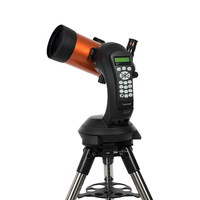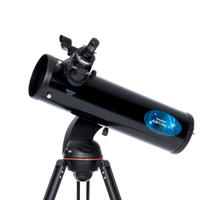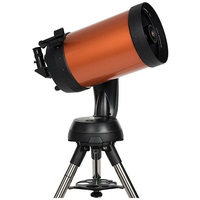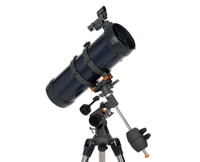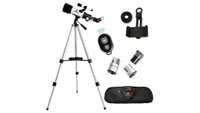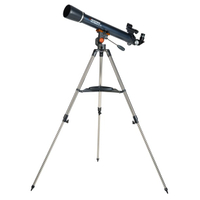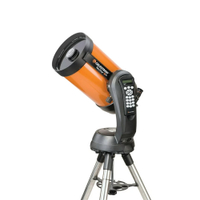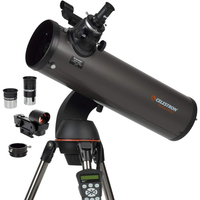Telescope deals 2025: save hundreds with these stargazing bargains
Discover the best telescope deals on the market, whether you're an absolute beginner, a serious skywatcher or somewhere in between.
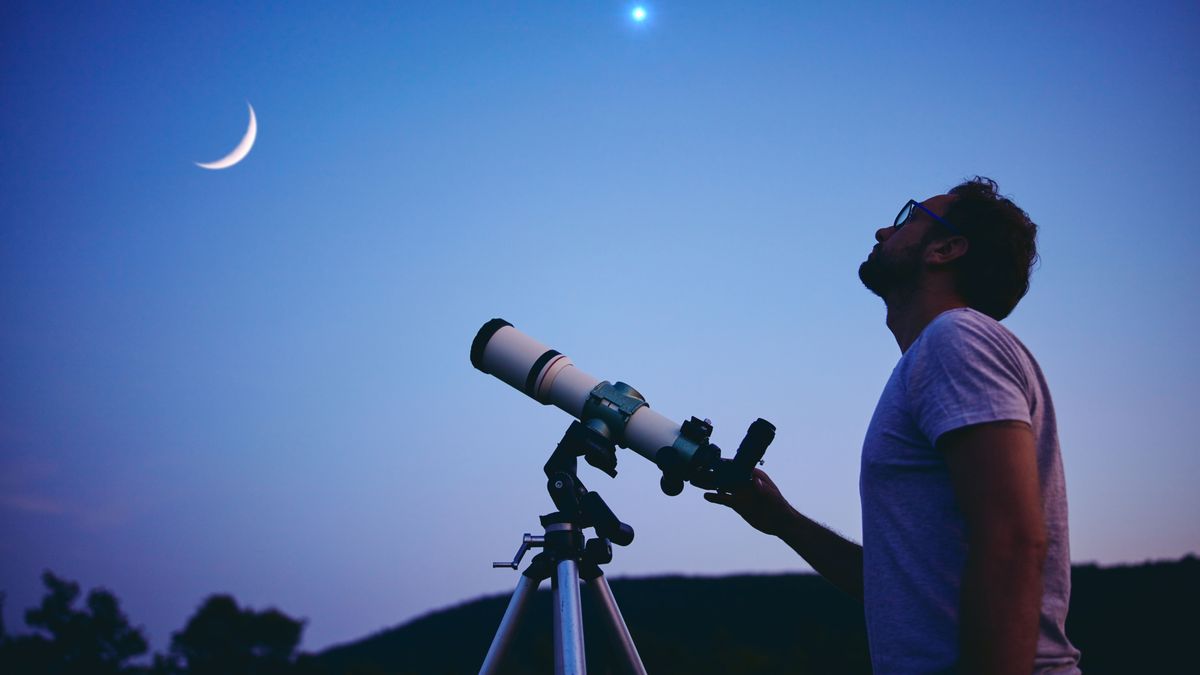
Looking for the best telescope deals? We've got you covered! While the holiday season is over, there are still plenty of fantastic discounts to be had, whether you're a seasoned stargazer or a beginner exploring the cosmos for the first time.
Now is a great time to look for telescope deals. They're in abundance, and you can also get big discounts on some of the best telescopes, best telescopes for beginners, and budget telescopes under $500.
We'll keep this guide updated regularly, ensuring you have access to the latest deals. So if you're after a stellar skywatching deal, take a look at the best telescope deals below.
- More top deals: Telescopes on Amazon
- See the latest discounts: Telescope at Walmart
- Browse the sales: Telescopes at Best Buy
Best telescope deals 2025
Today's best US telescope deals
Save $209 on this computer-aided telescope that features in our best telescopes guide. We found that it's the best for beginners, when we reviewed the Celestron NexStar 4SE.
Save $199 on The Celestron Astro-Fi 130 which offers excellent value for enthusiasts. Read more about it in our in-depth review.
Note: The before price has spiked to make it look like a bigger deal than it really is. So while the price you pay is still reasonable, it has been on sale for less before.
Save $300 on what we think is the best motorized telescope out there. When we reviewed the Celestron NexStar 8SE we rated it very highly, awarding it 4 1/2 stars.
Note: If you don't want to buy from Amazon, or if stock runs out, this deal is also available at Best Buy.
Save 14% on this 114mm push-to German Equatorial Newtonian telescope. It ships with a fully adjustable steel tripod, finderscope, 20mm and 10mm eyepieces.
Save 25% on the Gskyer 70mm Alt-az refractor telescope at Amazon. This refractor comes complete with all the accessories a beginner astronomer would want.
It includes two eyepieces (25mm and 10mm) a 3x Barlow lens for up-close views of night sky objects, phone attachment and Bluetooth control, a finder scope and an aluminum tripod. On top of all that, there's an accessory tray and carry bag for when you're out and about stargazing.
Save $68 on the Celestron AstroMaster 70AZ, now better than half price! This refractor telescope is perfect for beginners who want to observe the moon and planets.
It features an alt-azimuth mount, an easier to use option over equatorial models, and includes two eyepieces.
Today's best UK deals
Save over £200 on what we think is the best motorized telescope out there. We reviewed the Celestron NexStar 8SE and rated it very highly, remarking that'll be with you for years.
Save £70 on an excellent computerized telescope that features a database of over 40,000 night sky targets. It can locate and then track them, ideal for those wanting an easy stargazing experience. It has a compact design, despite the 130mm aperture, and comes with accessories like a hand controller, 25mm and 9mm eyepieces, a star pointer and Starry Night special edition astronomy software.
Save £151 on a great telescope that features in our best telescopes guide and we found that it's the best for beginners, when we reviewed the Celestron NexStar 4SE.
Buying advice: Finding the right one for you
Of course, you want the biggest discount you can possibly get, but saving isn't the only thing you need to consider. As tempting as these savings are it's important you get the right telescope for you, so think about your stargazing experience and what you want to view. Do you want to look at far-off nebulas and galaxies or planets and the moon, which are a little closer to home?
If you're after superb views of the planets and the moon you'll want something with a longer focal point - around 2000mm (80 inches) is an excellent choice. But, if it's crystal clear views of nebulas, star clusters and galaxies then a shorter focal length of around the 500mm (20 inches) mark would work really well.
Just to make it that little bit more challenging, there's also three different main types of telescopes to look out for. You have the choice of refractor, reflector and catadioptric telescopes, and while that say seem a daunting choice, don't worry. We've included a rundown of the pros and cons to each. It's important to consider these before picking out the right telescope deal for you.
Refractor telescopes are great for beginners, as they're easy to assemble and operate. They're also usually relatively cheap to manufacture, which is reflected in their final price. They are best suited to viewing things like planets and moons, thanks to their typically long focal length, but unfortunately, they do have a tendency to suffer from chromatic aberration.
Reflector telescopes are well-loved by amateur astronomers and better suited to low-magnification targets, such as galaxies and nebulas. These telescopes can be divided into two different types: Newtonians and Dobsonians. Newtonian reflectors are quite versatile and well-suited to astrophotography, but they require quite a lot of upkeep. Dobsonians might be more tempting to amateurs, as they tend to be simpler to maintain.
Finally, there are the slightly pricier catadioptric telescopes, which were created to tackle some of the problems found in the standard refractor and reflector design. Here, we've divided them into two categories: the Maksutov-Cassegrain and the Schmidt-Cassegrain. The former model is great for correcting issues such as the "coma" distortion effect and the aforementioned chromatic aberration. The latter is a very versatile model, also boasting reduced chromatic aberration, which typically comes equipped with a GoTo system. This software allows you to automatically point your scope at particular astronomical objects, which is great for beginners.
Newtonian telescope deals
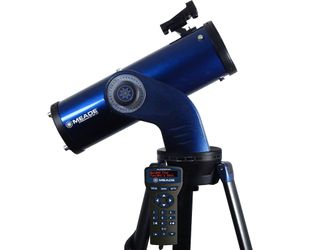
Newtonian telescopes are popular with amateur astronomers because they allow users to focus on a really wide range of night sky objects. They're complicated bits of kits that require a fair bit of maintenance, so if you are going to buy one of these models then make sure you pick one that has mirrors with a protective coating, as it will last longer.
Below, you'll find deals on the Celestron StarSense Explorer DX 130AZ. It's great for beginners and – crucially – usually reasonably priced.
Dobsonian telescope deals
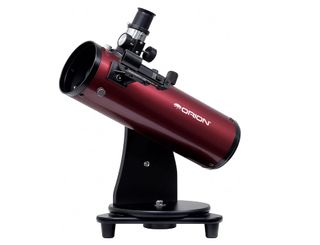
Dobsonian telescopes are another kind of reflector telescope. They're a lot easier to maintain and operate than their Newtonian counterparts, but they're still great for spotting a wide range of astronomical objects.
Depending on availability in your local area, in the deals box below, you'll find the latest prices for the Orion SkyScanner 100 Reflector, the Sky-Watcher Skyliner 200P and the Sky-Watcher Flextube 300 SynScan Dobsonian. The former two models are reasonably priced and ideal for beginners, while the latter model is a slightly pricier option, with a huge aperture that allows you to see deeper into space.
Refractor telescope deals
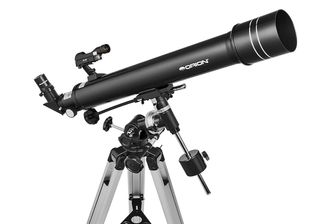
Refractor telescopes are intuitive to use and easy to set up, so they are popular with novice astronomers. They are also relatively cheap to manufacture, which means that you can get a refractor telescope with a decent size aperture for a very good price. The only drawback here is that the telescopes can suffer from chromatic aberration, where colors and images can seem a bit fuzzy.
Here, we've rounded up some of our favorite refractors: the Orion Observer II 70 Refractor, the Meade Instruments Infinity 102 AZ, the Celestron Inspire 100AZ and the Celestron Omni XLT 120. The first three are brilliant for beginners who want to get clear views of planets, while the Celestron Omni XLT 120 is perfect for intermediate astronomers who value high-quality optics and want to spend a little more.
Maksutov-Cassegrain telescope deals
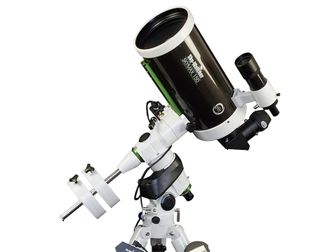
Put simply, Maksutov-Cassegrain telescopes correct problems you might find in a reflector telescope, such as the 'coma' effect, where images appear blurred. They have sealed optics, so you don't have to worry about maintenance, and they also tend to come with a go-to system, making it easy to navigate the stars. Some of the best beginner telescopes can be found in this category, although they can also be a little bit pricey.
Just below, you'll find deals on some of our favorite models when they're available. These are the Meade ETX90 Observer, the Sky-Watcher Skymax 150 PRO and the Celestron Astro Fi 102. The Celestron Astro Fi 102 is actually fairly well-priced — and a great option for beginners — while the other two are a little more expensive but still easy to set up and intuitive to use.
Schmidt-Cassegrain telescope deals
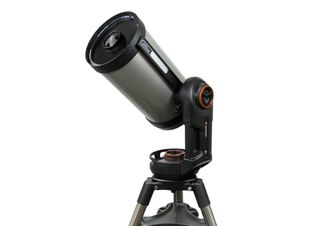
The Schmidt-Cassegrain telescopes we've included below are high-end models, with high-quality optics to match. They all boast decent apertures and can be used to get excellent views of planets and moons. Be warned, they're not always great for astrophotography because of their curved focal plane, but for stargazing purposes they're excellent.
When they're available, you'll find deals below for the Celestron NexStar Evolution 9.25 (which boasts one of the best optical systems we've ever tried), the Celestron NexStar 6SE, the Celestron NexStar 8SE, and the Celestron Advanced VX 9.25 EdgeHD, which is a rare example of a Schmidt-Cassegrain telescope that can be used by astrophotographers.
Kids' telescope deals
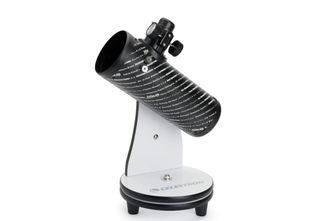
When you're choosing the best telescope for your kids, you want something robust, compact and — ideally — less than $100. Here, we've rounded up refractor and reflector telescopes that fit the bill. These instruments will give youngsters clear views of the moon, along with some of our closest planets and stars.
These telescopes offer the perfect introduction to astronomy, but for youngsters who prefer looking through two eyes, you might want to pick up some of the best binoculars for kids instead.
Below, you'll see deals on our top picks for youngsters: the Celestron FirstScope 76 Tabletop, the Meade Instruments StarPro 102, the Orion SpaceProbe II 76, the Celestron Astro Fi 90, the Orion StarBlast 4.5 Astro Reflector and the Celestron AstroMaster 70AZ.
Join our Space Forums to keep talking space on the latest missions, night sky and more! And if you have a news tip, correction or comment, let us know at: community@space.com.
Get the Space.com Newsletter
Breaking space news, the latest updates on rocket launches, skywatching events and more!

Jase Parnell-Brookes is the Managing Editor for e-commerce for Space and Live Science. Previously the Channel Editor for Cameras and Skywatching at Space, Jase has been an editor and contributing expert across a wide range of publications since 2010. Based in the UK, they are also an award-winning photographer and educator winning the Gold Prize award in the Nikon Photo Contest 2018/19 and named Digital Photographer of the Year in 2014. After completing their Masters degree in 2011 and qualifying as a teacher in 2012, Jase has spent the last two decades studying and working in photography and publishing in multiple areas, and specializes in low light optics and camera systems.
- Alexander CoxE-commerce Staff Writer
- Chris McMullenContributing Writer
